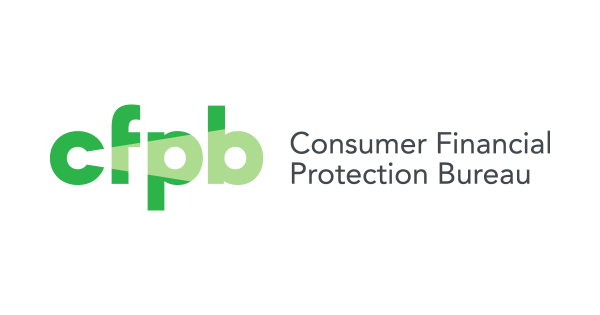Fay Servicing to Pay up to $1.15 Million to Borrowers Harmed by Illegal Servicing Practices
Washington, D.C. –(ENEWSPF)—June 7, 2017. The Consumer Financial Protection Bureau (CFPB) today took action against mortgage servicer Fay Servicing for failing to provide mortgage borrowers with the protections against foreclosure that are required by law. The Bureau found that Fay violated the CFPB’s servicing rules by keeping borrowers in the dark about critical information about the process of applying for foreclosure relief. The Bureau also found instances where the servicer illegally launched or moved forward with the foreclosure process while borrowers were actively seeking help to save their homes. The CFPB has ordered Fay Servicing to stop its illegal practices and pay up to $1.15 million to harmed borrowers.
“The Bureau found that Fay violated the CFPB’s servicing rules by keeping borrowers in the dark about critical information about the process of applying for foreclosure relief,” said CFPB Director Richard Cordray. “CFPB will continue to hold servicers accountable for violations of consumer protection laws.”
Fay Servicing is a mortgage servicer based in Chicago, Ill., that services loans for borrowers across the country. As a servicer, Fay Servicing is responsible for, among other things, creating and sending monthly statements to borrowers, collecting payments, and processing payments. For struggling borrowers, it administers short sale and foreclosure relief programs offered by the owner of the loan. These programs provide alternatives to foreclosure. Fay Servicing is responsible for soliciting borrowers for these programs, responding to their applications in a timely way, determining eligibility, and implementing the foreclosure relief program for qualified borrowers.
The CFPB is charged with enforcing the Dodd-Frank Wall Street Reform and Consumer Protection Act and other federal consumer financial laws. In addition, the Bureau adopted common-sense rules for the mortgage servicing market that first took effect in January 2014. The CFPB’s mortgage servicing rules require servicers to keep borrowers informed about requirements, options, and rights throughout the process of applying for foreclosure relief. In certain cases, they also provide certain protections from foreclosure proceedings during the application process. The CFPB’s investigation found that Fay Servicing violated these federal rules while borrowers were attempting to save their homes or find another alternative to foreclosure. Specifically, Fay Servicing:
- Kept borrowers in the dark about critical information about applying for foreclosure relief: As part of the requirements for keeping borrowers informed, servicers generally must send an acknowledgement notice when they receive an application for foreclosure relief. The notice must state whether and what additional documents or information are required from the borrower to complete the application. After a borrower completes the application, servicers must also generally send an evaluation notice spelling out what foreclosure relief options they are offering, the deadline to accept or reject the offer, and the rights borrowers have to appeal a servicer’s decision to deny certain types of relief. Fay Servicing failed to send or timely send both acknowledgment and evaluation notices with the relevant, correct information. This put the onus on borrowers to try to determine what else they had to do to attempt to save their homes or otherwise avoid foreclosure.
- Illegally launched or moved forward with foreclosure process against borrowers who were applying for help: When borrowers submit a complete application during certain time periods, a servicer is prohibited from starting or moving forward with various aspects of the foreclosure process for prescribed periods of time. Fay Servicing began, and in some cases completed, foreclosure proceedings even when homeowners were being considered for options to avoid foreclosure.
Enforcement Action
Under the Dodd-Frank Act, the CFPB is authorized to take action against institutions engaged in unfair, deceptive, or abusive acts or practices, or that otherwise violate federal consumer financial laws. Under today’s consent order, Fay Servicing must:
- Pay up to $1.15 million in restitution to consumers: Fay Servicing must pay up to $1.15 million to consumers who were subject to these illegal servicing practices.
- Offer borrowers opportunities to pursue foreclosure relief: Fay Servicing must also solicit consumers who were the subject of illegal actions to offer them the opportunity to pursue options to avoid foreclosure, to the extent possible. During the outreach and solicitation process, Fay Servicing must not take any foreclosure actions against the consumers. If the consumer responds to Fay Servicing’s solicitation within 60 days, Fay must not take any foreclosure actions against the consumer.
- Stop illegal practices and comply with mortgage servicing rules: Fay Servicing must stop illegal practices and respond with timely and accurate acknowledgment and evaluation notices required under federal regulations. Fay Servicing must also create policies and procedures that bring Fay Servicing’s operations into full compliance with the law, and make system changes to ensure Fay records data and tracks information that evidences compliance with federal law.
A copy of the consent order entered today is available at: http://www.consumerfinance.gov/documents/4820/062017_cfpb_Fay_Servicing-consent_order.pdf
###
The Consumer Financial Protection Bureau is a 21st century agency that helps consumer finance markets work by making rules more effective, by consistently and fairly enforcing those rules, and by empowering consumers to take more control over their economic lives. For more information, visit consumerfinance.gov.
Source: www.consumerfinance.gov









